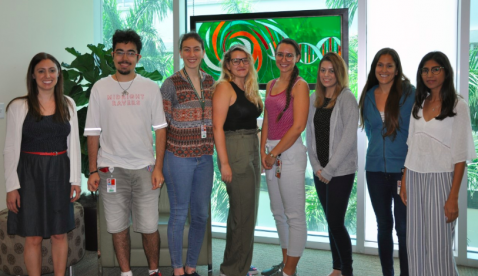Seeking patient care?
Program Overview
The Interdepartmental Program in Human Genetics and Genomics (HGG) is a multi-disciplinary program aimed at training scientists broadly in areas of human genetics and genomics relevant to human health and disease. Modern medicine is increasingly dependent on “genomic literacy” among practitioners and patients, and training the scientists who will work in genomics is our aim.
This program is a perfect fit for students from many scientific disciplines (such as biology, chemistry, biochemistry, mathematics, computer science) who wish to train in molecular or statistical genetics. Our focus on genetics and genomics as applied to human diseases and traits specifically makes this program unique; such focus is currently not present in other departmental or interdepartmental programs. The program includes a clinical training component, whereby students will rotate through medical genetics clinics and observe the application of human genetics in a health care setting. This activity will be coordinated with the existing Medical Genetics residency program and provide an opportunity for Ph.D. students to interact with M.D. medical geneticists.
Why a Ph.D. in Human Genetics and Genomics?
Individuals earning Ph.D. degrees in human genetics have various career options, including clinical laboratory, research laboratory, or computational research in academia, healthcare, and the biotechnology industry. As biotechnology industry grows, graduates prepared for careers in this industry are crucial. Additionally, the practice of medicine is concerned with both the genetic basis of disease as well as the response to treatment. As genomic medicine continues to develop, the demand for scientists trained in the molecular and statistical methods used to dissect complex human traits will be high; therefore, having a Ph.D. in human genetics and genomics will put you ahead of the game.
Applying to the Program
Students interested in the program should apply to the Program in Biomedical Sciences (PIBS), the integrated first-year program for all eight biomedical Ph.D. programs at the Miller School of Medicine.
To learn more about this program, please contact the HGG Program Manager, Jeanie Martin or Genetics Education.

